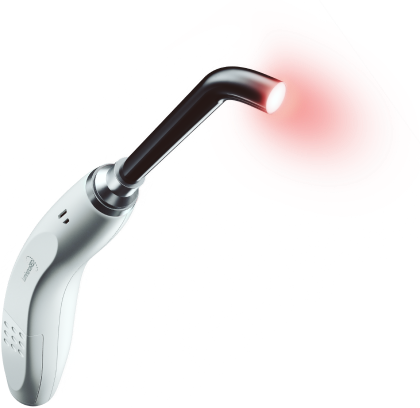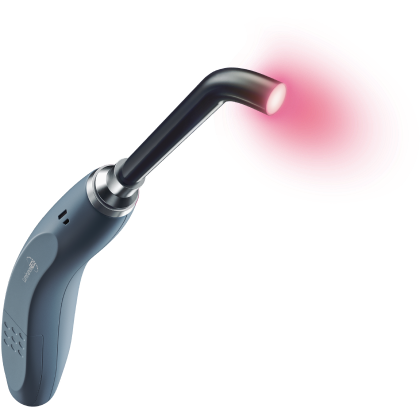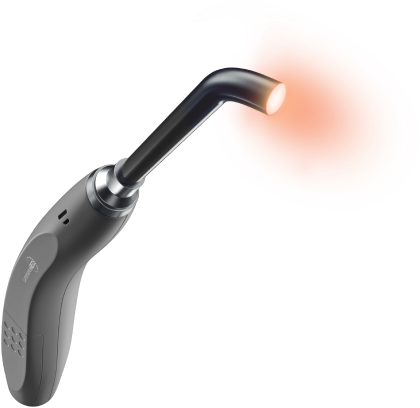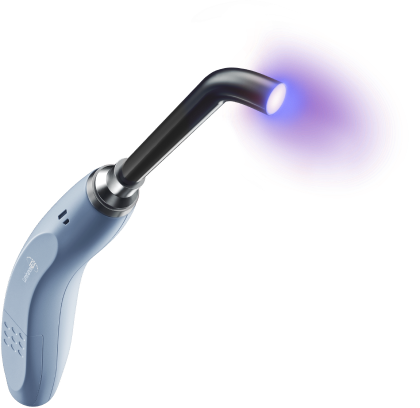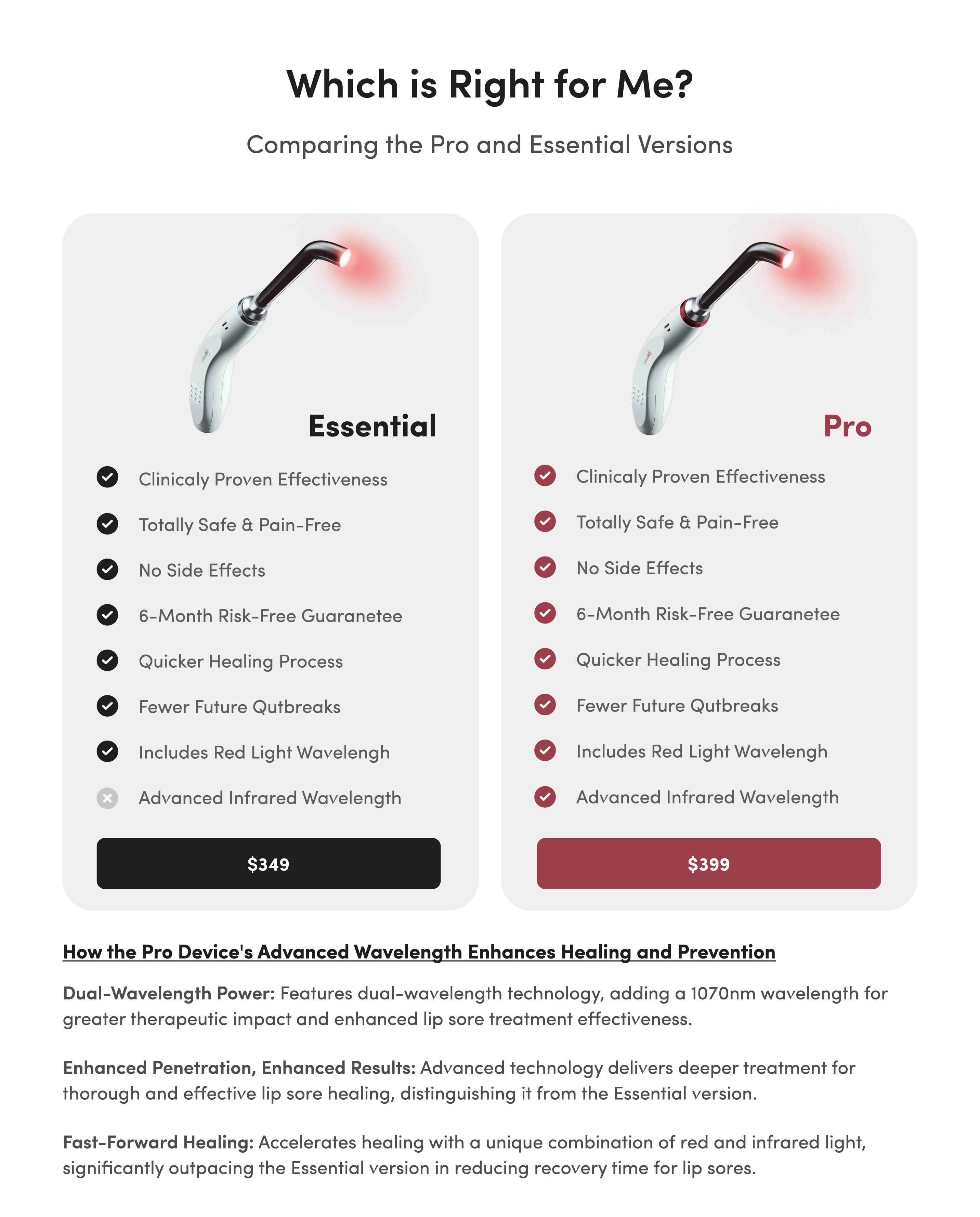Why You Won't See a Cure For Herpes Any Time Soon

Just like the common cold, herpes is a widespread illness lacking any cure.
People infected with the herpes virus are infected for life. They have no choice but to manage outbreaks when they occur and hope for less frequent outbreaks in the future.
But in today’s modern age of science, it seems that a cure for such a common condition should be easy to achieve! Will there be a cure for herpes… ever?
Here’s the good news: A herpes cure isn’t impossible, and scientists are actually making progress toward this achievement. Unfortunately, these promising cures are still a long way from becoming a reality.
Why Isn’t There a Cure for Herpes Already?
No company has managed to successfully develop a commercially ready herpes vaccine, however, several HSV vaccines have undergone phase I and II trials. Until recently, at least three pharmaceutical companies were overseeing clinical trials for herpes vaccine candidates. All three companies recently abandoned their research after failing to meet their primary endpoints.
How does herpes continue to hoodwink experienced researchers and scientists, when other devastating diseases like the measles, mumps, hepatitis B, and whooping cough have been nearly eliminated?
It all comes down to the unique behavior of the herpes simplex virus.
Herpes is a complex virus that knows exactly how to evade the immune system’s grasp. It lies dormant in nerve cells for months or years at a time, then emerges without any warning to reactivate the infection. In this way, herpes behaves like a cancer that lurks in the body undetected until the damage is already done.
To make matters worse, as long as just a minuscule amount of infection remains after an outbreak fades, herpes can easily survive and reappear in future outbreaks.
Pharmaceutical companies are eager to uncover a cure for herpes, but they must first overcome an extremely long and expensive research process.
CRISPR Herpes Cure May Be the Answer
The ultimate herpes cure may not come from a shot or an ointment. It may actually come from genome editing. It sounds like science fiction, but modern technological advances have brought us closer and closer to altering the DNA sequences of humans.
What Is CRISPR?
CRISPR-Cas9, more commonly known by its shorthand “CRISPR”, and pronounced “crisper”, is a specialized stretch of DNA. CRISPR technology was modeled from the natural defense mechanisms of bacteria.
These single-celled microorganisms use CRISPR-derived RNA and proteins like Cas9 to block attacks by viruses and other invaders. As viruses approach bacteria, their DNA becomes disrupted and destroyed.
It was only recently in 2017 that scientists discovered how to replicate CRISPR activity in more complex organisms. The result is now known as gene manipulation or “editing”. Some experts advocate for the potential benefits of CRISPR technology, while others worry about its ethical implications.
Advocates of CRISPR point out that its potential benefits can change lives by:
- - Correcting genetic defects
- - Preventing disease before it begins
- - Treating the spread of deadly disease
- - Improving crop growth
Will There Be a Cure For Herpes With Crispr?
A CRISPR herpes cure is possible, but not anytime soon.
In December 2019, scientists from Harvard Medical School successfully disrupted the herpes simplex virus for the first time and identified weak spots where the virus may be susceptible to gene editing. However, that accomplishment is only the beginning of the process for a CRISPR herpes cure.
As explained by study lead investigator David Knipe, “This is an exciting first step—one that suggests it is possible to permanently silence lifelong infections—but much more work remains to be done.”

What About a Herpes Vaccine?
Researchers have been experimenting with potential herpes vaccines for decades, but to date, only the shingles and chickenpox variants of herpes can be prevented with a vaccine.
Clinical trial testing for herpes vaccines has proved difficult for many reasons, including asymptomatic infection and unpredictable viral shedding.
However, a new study from the University of Cincinnati, Northwestern University, and the University of Nebraska-Lincoln hopes to accomplish what others have not. The study’s research team has genetically edited a form of herpes simplex virus and “rewired it” so that it can’t hide out in the nervous system during dormant periods. Early results suggest there’s hope for a vaccine, but just as with the CRISPR herpes cure, final results are still years away.
What Are the Current Herpes Treatment Options?
Until a herpes cure becomes a reality, you can still use current herpes treatments to manage outbreaks. From at-home DIY measures and online pharmacies to supplements and topical remedies, you have plenty of options to consider.
Treatment Options for Genital Herpes
Head into your doctor’s office, use an online pharmacy, or check your medicine cabinet for these effective genital herpes antiviral medications.
Acyclovir
Acyclovir is an antiviral medication that treats infections caused by the herpes simplex virus, including genital herpes. You might recognize Acyclovir by its brand names like Zovirax, Cymex Ultra, and Virasorb.
It’s best to start taking Acyclovir as soon as you notice the first signs of an emerging outbreak. This medication stops the herpes virus from growing and spreading during an outbreak, although it cannot remove the virus from your body completely. Most people experience relief within just a few days of taking Acyclovir for genital herpes.
Valacyclovir
Valacyclovir, also known as Valtrex, is Food and Drug Administration (FDA)
approved to treat genital herpes. This antiviral drug interferes with the DNA replication of the herpes virus for an even longer duration of time than acyclovir. As a result, you can take Valacyclovir less frequently and still enjoy consistent results.
NSAIDS For Pain Relief
Genital herpes outbreaks can cause days or even weeks of discomfort. Fortunately, you probably already have pain relief options sitting in your medicine cabinet. Aspirin, ibuprofen, and acetaminophen are all formulated to reduce the inflammation that causes so much pain during outbreaks.
Treatment options for Oral Herpes
Oral herpes, also known as cold sores, can be treated using a number of affordable over-the-counter products (OTC).
Abreva
Abreva® is an over-the-counter cream used to treat cold sores and fever blisters. It contains the only non-prescription ingredient approved by the FDA to accelerate the cold sore healing process. Apply Abreva® directly to your cold sore at the first sign of emergence for best results. This OTC treatment can be used up to five times a day, or as directed by your doctor.
When used at the first sign of that cold sore “tingle”, Abreva® can reduce healing time to between 2.5 and 4.1 days. It works by blocking the herpes virus from entering healthy skin cells and replicating. This means that Abreva® delivers the best results when applied in evenly spaced intervals to keep the skin consistently covered.
Orajel
Orajel™ is a popular over-the-counter medication for instant and targeted pain relief in and around the mouth. For herpes simplex cold sores, the Orajel™ Cold Sore formula includes six active ingredients shown to treat the pain, itching, and dryness caused by cold sores.
Orajel™ uses a combination of skin protectants, topical anesthetics, and topical analgesics to temporarily relieve symptoms of cold sores and fever blisters. The product is applied directly to the cold sore and blended well until the green tint disappears. It’s safe to apply Orajel™ up to four times a day to maintain comfort.
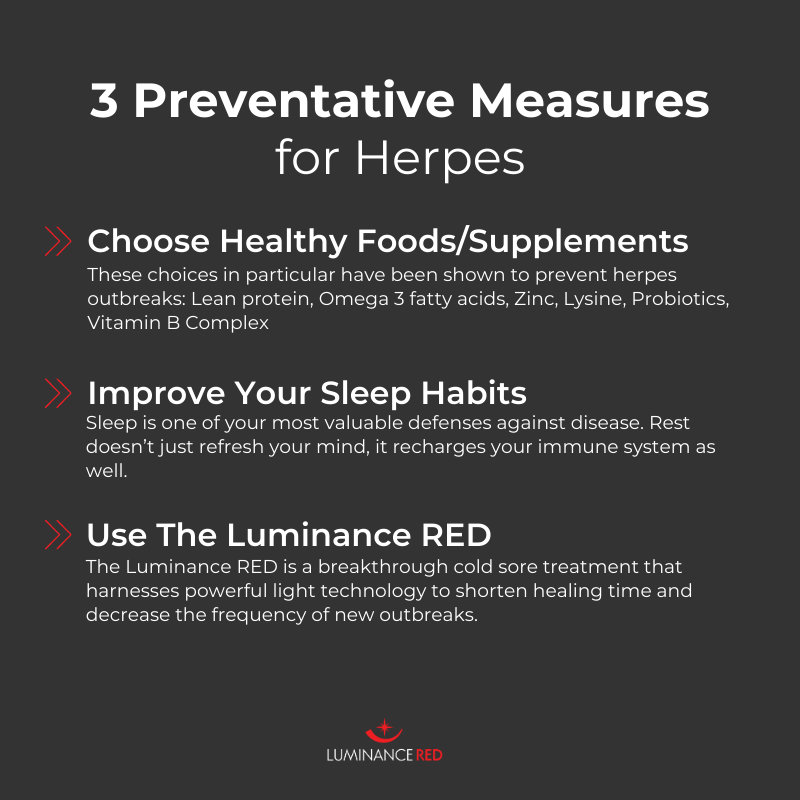
What Are the Current Preventative Measures for Herpes?
If you’re already infected with the herpes virus, an outbreak could emerge at any time. This is why preventative measures are so important. With strategic care, you can prevent future herpes outbreaks and avoid the painful and uncomfortable process of treating lesions after they erupt.
Choose the Right Foods and Supplements
You can’t go wrong by eating healthy and taking supplements, but these choices in particular have been shown in clinical and anecdotal research to prevent herpes outbreaks:
- - Lean protein
- - Omega-3 fatty acids
- - Zinc
- - Lysine
- - Probiotics
- - Vitamin B Complex
Improve Your Sleep Habits
Sleep is one of your most valuable defenses against disease. Rest doesn’t just refresh your mind, it recharges your immune system as well.
Stop fatigue from zapping your immune system and making you vulnerable to cold sore outbreaks with these tips:
- - Create a soothing sleep environment
- - Reduce technology and blue light before bedtime
- - Develop a consistent evening routine to wind down
- - Get regular exercise during the day
Use The Luminance RED
The Luminance RED is a breakthrough cold sore treatment that harnesses powerful light technology to shorten healing time and decrease the frequency of new outbreaks.
This FDA-registered device nourishes the skin with red light, which is metabolized to accelerate the body’s healing process and strengthen its defenses against future attacks. Regular use of the Luminance RED not only shortens the healing time of active outbreaks, but it can prevent future outbreaks altogether!
The Luminance RED was designed with ideal wavelength and irradiance specifications to maximize efficiency in treating and preventing cold sore outbreaks. Thanks to the Luminance RED, light therapy has become one of the simplest and most effective ways to prevent unwanted cold sore and genital herpes outbreaks.








